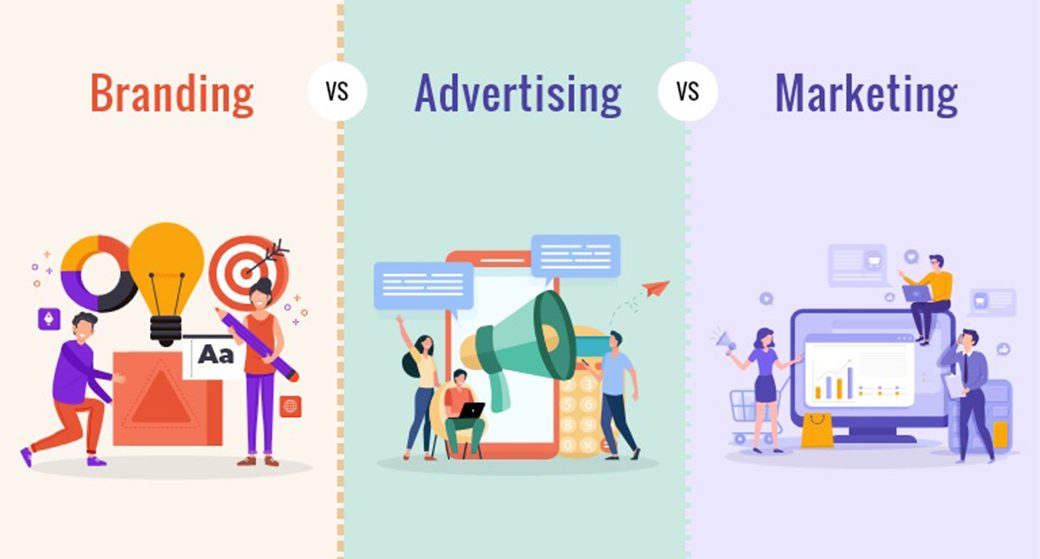
My Interconnected World of Marketing, Branding, and Advertising: A Personal Journey
Marketing, branding, and advertising are distinct but they work together to build a successful business
While I run one of Nepal’s emerging advertising agencies, I consider myself a student of marketing. How I got into the studies of marketing at my Master’s level in itself is an interesting tale of sorts. After schooling, I was a student of life science, specializing in microbiology. Fresh out of college with a B. Sc. in Microbiology under my belt I took my first job best known as an MR – a Medical Representative. As an MR, I carried a black leather handbag stuffed with medicine samples and product booklets, visiting mostly private hospitals in Nepalgunj and Kathmandu and “marketing” my company products.
For several years, marketing became my profession even though I practically knew nothing about it. My exposure to selling wide-ranging drugs and the confidence coupled with on-the-job skills that I had acquired over time gradually developed a keen interest in me to pursue marketing as an academic Master’s degree.
Rest, as they say, is history – in my case too.
As I have observed, many people often mistakenly take that marketing, branding, and advertising are synonymous terms. I could be no exception – for quite some time. Over time, however, I learned that while these concepts are interrelated, they each have distinct meanings and processes.
In simpler words if I have to explain what advertising, marketing, branding and sales are let me give you an example:
Let us suppose, you have planned to produce shampoo. Now, you want to sell it in the market so you give it a name and you make your product to be uniquely identifiable in any shop or salon because of its signature or the unique shape of the bottle. This is branding.
When you communicate its benefits to potential customers through different tools (tools can be anything from print, TV, FM, social media, merchandise, visibility, etc.). This is advertising your product.
Customers buy your shampoo then you have sales.
So this whole process from producing the shampoo, naming it, finding potential customers, advertising it, and selling it is called marketing.
So as we see, marketing and branding are two essential components of any successful business, but they are often used interchangeably, leading to confusion about their differences and how they work together.
Examples of all of these marketing components can be seen in day-to-day life. This article attempts to clear out that very confusion with some real-world examples of marketing, branding, and advertising.
When we talk about branding, it helps a business to stand out in crowded markets, making it easier for customers to choose them over competitors.
You can take any Apple product as a good example of branding. Their products are instantly identifiable because of their famous emblem, the way they are made, and the attractive packaging they come in. With the help of personal computers, the iPod, and the iPhone, they were able to refine the recipe that they had begun to develop. There are several benefits to developing a truly distinctive product brand and communicating it consistently.
Branding is focused on creating a unique identity and personality for a business. It’s the process of establishing a strong and recognizable brand that sets a business apart from its competitors. Branding encompasses all aspects of a business, including its name, logo, color scheme, tone of voice, values, and mission. It’s about creating a connection with customers that goes beyond just the products or services being offered.
The uniquely identifiable product or service, however, must be communicated to the audience for them to know about the product. This is where advertising plays its role.
Advertising, on the other hand, is a strategic effort to spread awareness of a product or service as part of broader marketing tactics. A prime example of a successful advertisement without a physical product is “Dumb Ways to Die,” produced by McCann Erickson – albeit not legally advertisements — in 2012 as a public service message for Metro Trains Melbourne.
The humorous video and song raised train safety awareness and became a viral sensation, reaching the top 10 on iTunes and garnering hundreds of millions of views on YouTube.
In short, advertisement is a strategic effort usually paid for to spend awareness of a product or service as a part of more holistic goals outlined by the brand or marketing tactics.
By thinking outside the box and finding unique ways to connect with customers, businesses can generate buzz and drive sales. Additionally, by leveraging multiple channels to promote their message, businesses can increase their reach and ensure that their message is seen by as many potential customers as possible.
Advertising and sales have particular processes and all of these together as a larger frame is what we call marketing. Marketing is a more extensive process that includes branding, advertising, and sales. Marketing activities range from developing, designing, delivering, and delighting consumer needs.
To sum up, marketing, branding, and advertising are distinct but they work together to build a successful business. Marketing focuses on product development, promotion driving sales, and bringing consumer satisfaction. Branding is about creating a unique identity and personality that sets a business apart from competitors. Advertising is about communicating brand essence to a customer. By aligning marketing tactics with the brand’s values and mission; creating a strong and recognizable advertisement, businesses can create a cohesive and effective marketing strategy that engages customers and drives sustainable growth for a company.
Manoj Panjiyar (MD)
KrityaHub Pvt. Ltd



